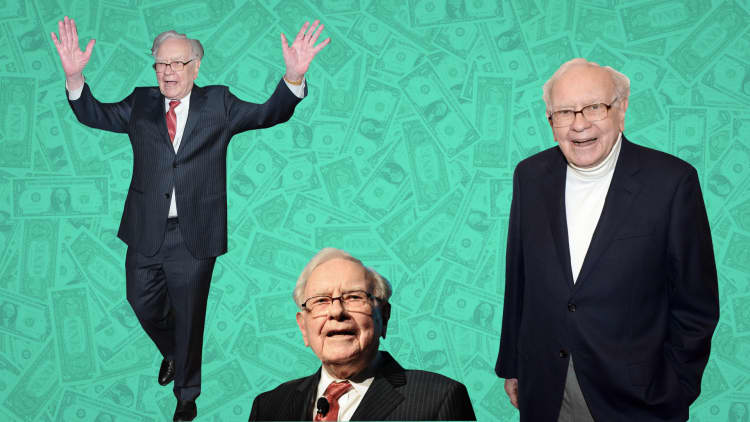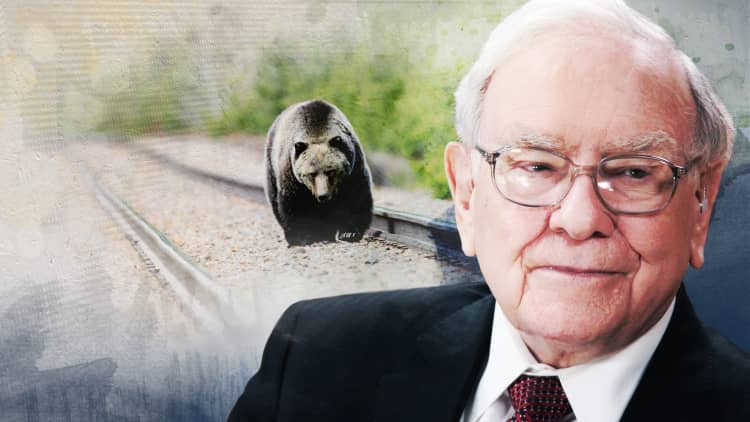Many investors use a common way of trading, but not Warren Buffett. The "Oracle of Omaha" says it's too short-term focused and not based on his favored long-term, buy-and-hold method.
At his 1994 annual meeting, Buffett recalled a time when he was talking to Berkshire Hathaway's NYSE specialist, the late James Maguire. Maguire mentioned the company's stock has some "significant stop-loss orders on the books ... involving some hundreds of shares."

A stop-loss order "is an order placed with a broker to buy or sell once the stock reaches a certain price," according to Investopedia. "A stop-loss is designed to limit an investor's loss on a security position."
For example, if an investor buys Starbucks at $70 a share and sets up a stop-loss order for $63, the stock is automatically sold if it drops to that level.
'If anybody ever comes along...'
The chairman and CEO of Berkshire Hathaway doesn't sell stocks using a stop-loss order because of its short-term focus. And because he has long maintained that trying to time the market is impossible. Buffett says investors should not try to trade stocks, but invest in them steadily over time.
It "has always struck me as like having a house that you like, and you're living in, and, you know, it's worth $100,000 and you tell your broker, 'You know, if anybody ever comes along and offers $90 [thousand], you want to sell it,'" Buffett joked to the audience at the 1994 meeting. "It doesn't make any sense to me."
Buffett expounded that the investors who would trade Berkshire this way are not the kind of share owners he would like to attract. Those investors are not thinking long term with their "totally noninvestment-type calculations."

In fact, long-term investors like Buffett see price drops an as opportunity to buy more shares at a discounted price. The 88-year-old investor never tries to figure out where a stock is going to be in six months, which has proved a successful strategy.
Because of Buffett's thoughtful stock and company purchases, Berkshire Hathaway has returned 20 percent annually the last 40 years, double the return of the S&P 500 over that same time span, according to FactSet.
For more classic Warren Buffett advice, see CNBC's Warren Buffett Archive.


